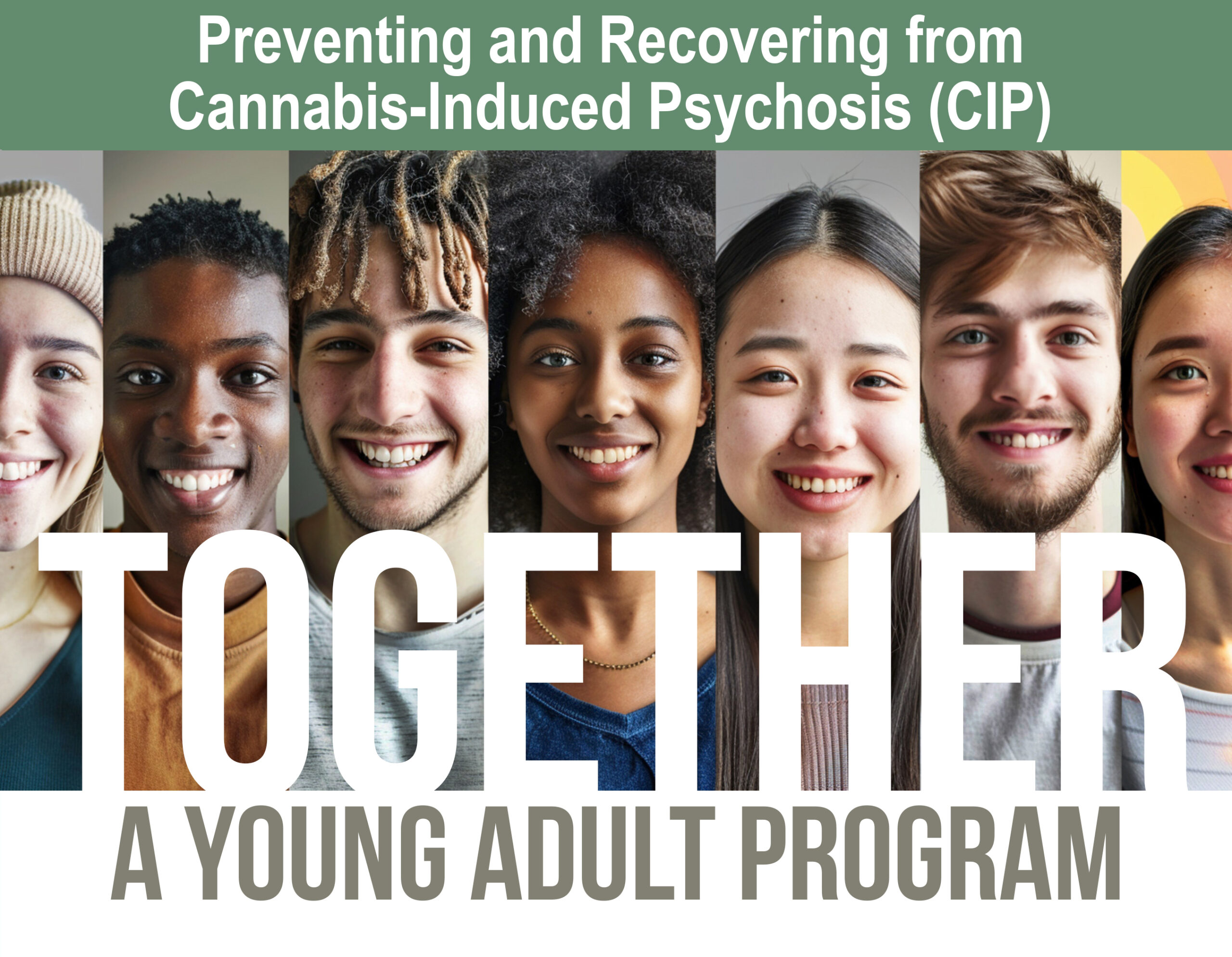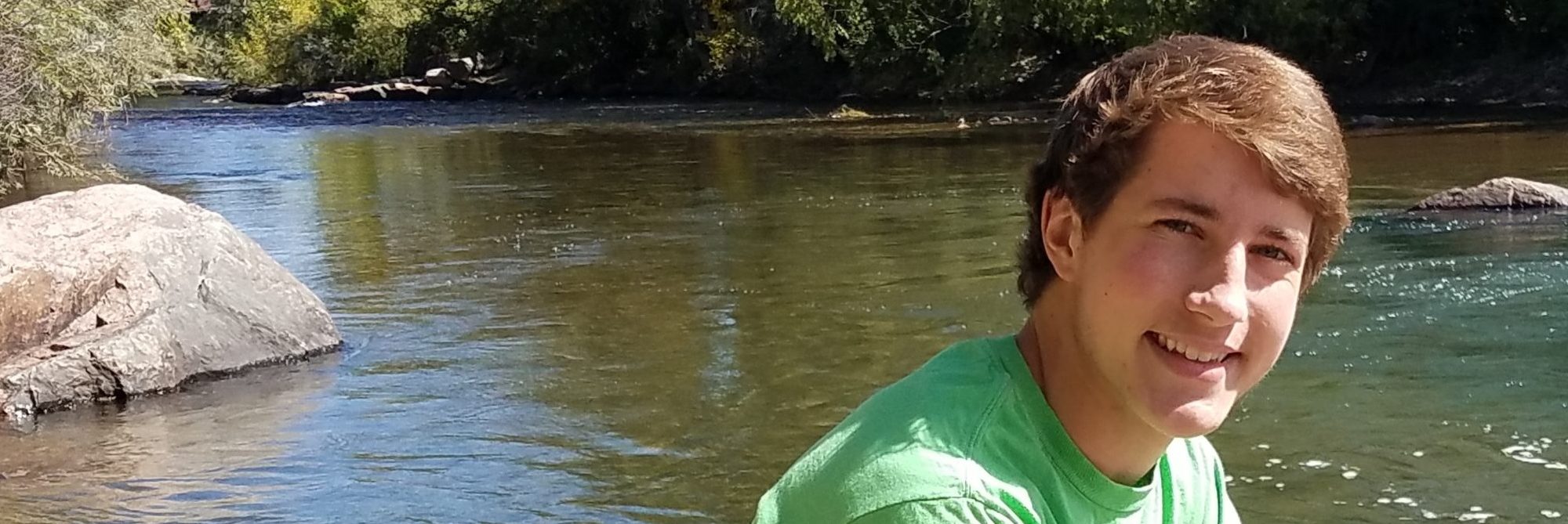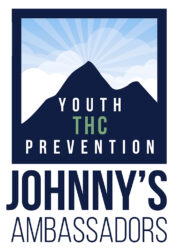
Participants must be 18-30 years of age and sign up personally (cannot be signed up by an adult on behalf of them)
Goal: Foster knowledge, strength, and resilience among peers who have experienced and want to prevent Cannabis Induced Psychosis (CIP). If you have experienced CIP and/or health struggles after CIP and want to be in community with people who understand, please join us, our group is for you!
Actions: Support through togetherness, care, and empathy. Meet a need in the community to promote sobriety, growth, and healing through conversation and connection.
Why we want you to complete this form: Meet you where you’re at (helps us understand the needs and wants of the group). Be able to report on the impacts of the peer support group.
When? Weekly SUNDAYS (VIRTUAL) at 6:00 PM mountain/8:00 PM eastern
Members reserve the right to exit meetings, pass on questions, and/or keep camera off for any reason. We do not allow guests from other organizations or soliciting.
Your Facilitators: Grace and Bennett, who both experienced Cannabis-Induced Psychosis and are now in recovery.
Register Below: By registering, you are agreeing to the LIABILITY WAIVER & PARTICIPANT AGREEMENT at the bottom of this page.
Example Schedule:
| 10 Minutes | Welcome and ‘Would you rather’ Poll |
| 20 Minutes | Topic Question, Everyone Receives an Opportunity to Answer Example: Have you ever found it easier to forgive someone else than yourself? Why? |
| 20 Minutes | Activity |
| 10 Minutes | Check- Out Question in the Chat Box Example: What are some benefits of forgiveness, even when it’s difficult? |
Group Norms
Confidentiality – “What’s shared here stays here—respect everyone’s privacy.”
Respect – “Listen actively and honor each person’s unique experiences.”
Inclusivity – “Everyone’s voice matters; all perspectives are welcome.”
Boundaries – “Share comfortably and respect emotional and time limits.”
Support – “Focus on empathy, encouragement, and shared understanding.”
Key Topics
- Forgiveness
- What do you think forgiveness means in practice?
- Have you ever found it easier to forgive someone else than yourself? Why?
- What are some benefits of forgiveness, even when it’s difficult?
- How do you know when you’re ready to forgive?
- Friendship
- What do you value most in a friend?
- Can you think of a time when a friend showed up for you in an unexpected way?
- How do you maintain friendships during busy or challenging times?
- What’s one quality you bring to your friendships that makes them special?
- Values
- How do you define your core values?
- Can you share an example of a decision you made based on your values?
- How do your values shape your relationships with others?
- Have your values changed over time? If so, how?
- Humor
- What’s something that always makes you laugh, no matter what?
- Can you share a funny memory that still makes you smile?
- Do you think humor can help in challenging situations? Why or why not?
- Who’s your favorite comedian or funny character, and what do you like about them?
- Expression
- What’s your favorite way to express yourself creatively?
- How do you feel after you’ve expressed yourself through art, writing, or conversation?
- Are there any forms of expression you’ve always wanted to try but haven’t yet?
- What’s a time when expressing yourself helped you connect with someone?
- Rediscovering Hobbies
- What’s a hobby you used to enjoy but haven’t done in a while?
- How does engaging in a hobby make you feel?
- What’s one hobby you’ve always been curious about but never tried?
- Do you prefer solo hobbies or group activities, and why?
- Volunteering
- What’s a cause or issue you feel passionate about?
- Can you share a rewarding experience you’ve had while volunteering?
- How do you think volunteering benefits the community?
- What skills or strengths do you think you could offer as a volunteer?
- Goal Setting
- What’s a goal you’re currently working toward, big or small?
- How do you break down larger goals into smaller, manageable steps?
- Can you share an example of a goal you achieved and how it made you feel?
- What motivates you to keep going when progress feels slow?
- Challenging Stigma/ Resilience
- What’s one stereotype or stigma you wish people would challenge more?
- Can you share a time when you helped someone see a situation differently?
- Why do you think stigma exists, and how can we combat it?
- Can you share a time when you overcame a challenging situation? What helped you get through it?
- Who or what inspires you to keep going when things get tough?
- How do you think resilience can be strengthened, like a muscle?
- What’s one small habit or activity that helps you bounce back from setbacks?
- How do you celebrate your progress when working through difficult times?
- Do you think resilience is something people are born with or something they develop?
- What advice would you give to someone who’s struggling to see their own resilience?
Together: Young Adult Group Liability Waiver & Participant Agreement
Effective Date: March 5, 2025
1. Introduction
Together: Young Adult Group (“the Group”) is a peer-led support initiative operated under Johnny’s Ambassadors (“the Organization”). The Group aims to foster knowledge, strength, and resilience among peers who have experienced and want to prevent Cannabis Induced Psychosis (CIP). Participation is voluntary, and all participants must be at least 18 years of age and sign up personally.
2. Assumption of Risk
By signing this agreement, I acknowledge and understand that the Group is a peer-led support initiative and does not provide medical, psychiatric, or professional counseling services. Participation involves personal discussions and shared experiences that may be emotionally triggering. The Group leaders and participants are not licensed medical professionals, and any discussions or advice shared should not be considered professional medical guidance. Participation in virtual meetings carries potential risks related to privacy and confidentiality, and while the Organization will take reasonable measures to protect privacy, confidentiality cannot be fully guaranteed.
If the Group facilitators have reason to believe you are in immediate danger, you authorize us to seek medical help for you.
3. Release of Liability
I, the undersigned, voluntarily assume full responsibility for any risks, injuries, or damages—whether known or unknown—that may arise from my participation in the Group. I hereby release, waive, and discharge the Organization, its staff, volunteers, peer facilitators, and affiliates from any and all claims, liabilities, demands, and causes of action that may arise from my participation, including but not limited to emotional distress, discomfort, or mental health concerns that may arise from participation, any actions or advice given by fellow participants or facilitators, and unauthorized sharing of personal information by other participants.
4. Confidentiality Agreement
I agree to respect the confidentiality of all participants. This includes not sharing identifying details of fellow participants outside the Group, not recording, screenshotting, or distributing any information discussed in meetings, and maintaining a safe and respectful environment for all members.
5. Code of Conduct
I agree to participate in the Group with kindness, respect, and empathy. I understand that disruptive behavior, harassment, or breaches of confidentiality may result in removal from the Group.
6. Agreement to Seek Professional Help When Needed
I acknowledge that the Group is not a substitute for medical or professional care. If I am in crisis, experiencing severe distress, or require professional support, I agree to seek help from a licensed medical provider, therapist, or crisis support service.
7. Acknowledgment and Signature
I have read and fully understand this Liability Waiver & Participant Agreement. By registering for this program, I acknowledge that I am at least 18 years old and agree to the terms of this waiver. In short, the waiver is saying:
· You’re participating voluntarily and understand the group is peer-led, not professional counseling.
· There are risks involved, including emotional distress and privacy concerns.
· You’re responsible for your own well-being and release the organization from liability for any harm (emotional, mental, or otherwise) that may arise.
· Confidentiality is expected, meaning you won’t share personal details from the group.
· You must act respectfully, and breaking the rules could result in removal.
· You should seek professional help if needed, as this group isn’t a substitute for therapy.
Thank you for joining Together: Young Adult Group. We look forward to fostering a space for support, healing, and growth.

